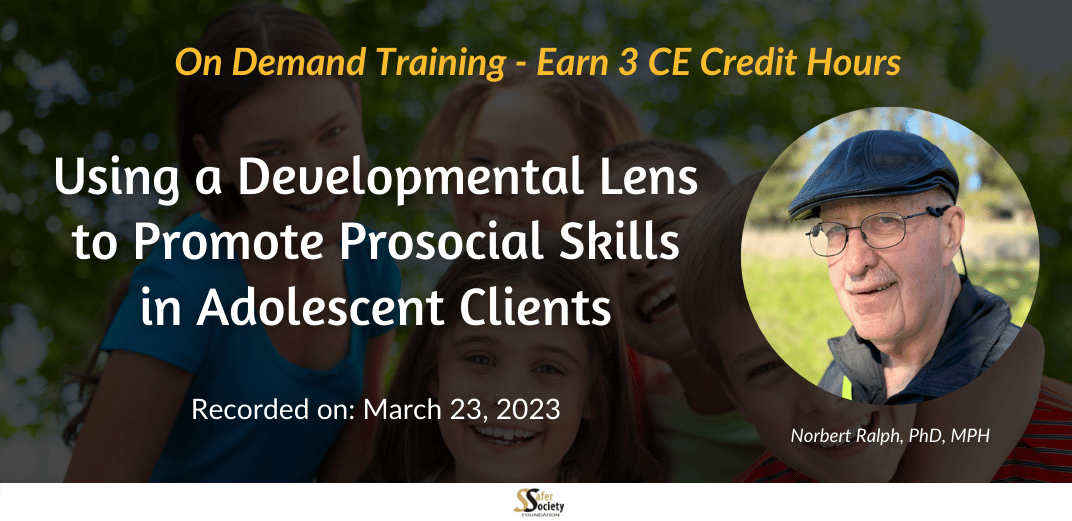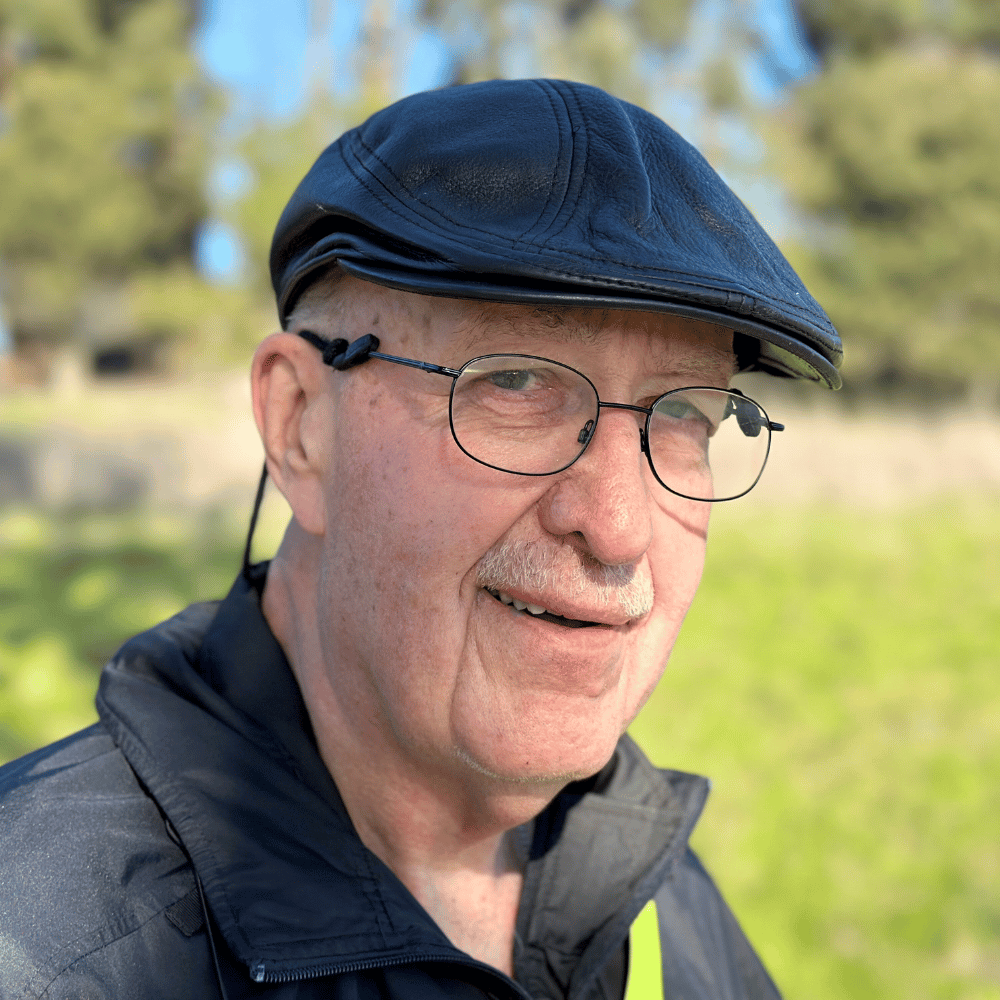
Using a Developmental Lens to Promote Prosocial Skills in Adolescent Clients
Already purchased an On Demand training?
Click here to access your Safer Society On-Demand Training Center account.
The most effective approaches to understanding, assessing, and treating juveniles who have sexually offended are those that account for adolescent development. Practicing with a “developmental lens” can help ensure that our methods result in prosocial behaviors and better lives. This training is designed to help attendees set developmentally appropriate treatment goals and promote teens’ ability to make better decisions and take greater responsibility for their lives.
Dr. Ralph begins the training by comparing historical treatment approaches and offers insights into what we know about adolescent development, for example, how testosterone output corresponds to changes in criminal behavior. He further explores how these factors, along with what we now know about brain plasticity, call for a different response to adolescent crime than is being offered by the current legal system.
Dr. Ralph next explores the characteristics of effective programs; in particular, the forms of therapeutic counseling that support problem-solving skill-building and prosocial approaches to daily life. He discusses the skills used by effective probation officers as well as counselors and examines specific approaches, such as Aggression Replacement Training (ART) and methods from Dr. Ralph’s “Being a Pro” workbook and related research and theory publications. Finally, he examines specific guidelines from “Prosocial Passages,” a work in development.
Key topics discussed include:
- Evidence-based treatment for adolescents who have sexually offended
- Developmentally appropriate treatment methods and counseling skills
- Neurologically informed approaches to assessment and treatment
- Recidivism rate variations between juveniles and adults
- Juvenile justice systems and prosocial maturation
- Interaction of prosocial development and comorbidity
1) Describe relevant models of child and adolescent development.
2) Critique historical approaches to treating juveniles who have sexually offended.
3) Describe three treatment methods that are developmentally related.
4) Explain two characteristics of effective treatment programs.
Audience
This training is designed for professionals working with adolescents who have perpetrated sexual abuse. Professionals who will benefit from this training include social workers, psychologists, clinical counselors, juvenile justice personnel, and probation officers.
Content Level
Disclosure
Continuing Education Approval
American Psychological Association (APA)
Safer Society Foundation, Inc. is approved by the American Psychological Association (APA) to sponsor continuing education for psychologists. Safer Society Foundation, Inc. maintains responsibility for this program and its content.
Who's Presenting

Norbert Ralph, PhD, MPH
Dr. Ralph is a clinical psychologist, formerly at the Juvenile Justice Center in San Francisco, and Coordinator of the Juvenile Sexual Responsibility Program. Dr. Ralph is a psychiatric epidemiologist and neuropsychologist who has over 50 publications, including articles, book chapters, blogs, and books.
He was formerly Associate Clinical Professor in Family Practice, University of California School of Medicine at Davis, and Lecturer and Research Biostatistician in the Program in Maternal and Child Health, School of Public Health, at the University of California, Berkeley. He is a Trainer for Aggression Replacement Training through the California Institute for Mental Health. He completed the Transformative Leadership Vanguard Program through the University of Cincinnati Corrections Institute in 2025.
He is a board member of CalATSA and was formerly on the Prevention Committee of ATSA. He is on the Conference Committee of the Forensic Mental Health Association of California. He is the juvenile treatment representative on the California Sex Offender Management Board and contributed, along with other board members, to their 2022 Youth Guidelines.
